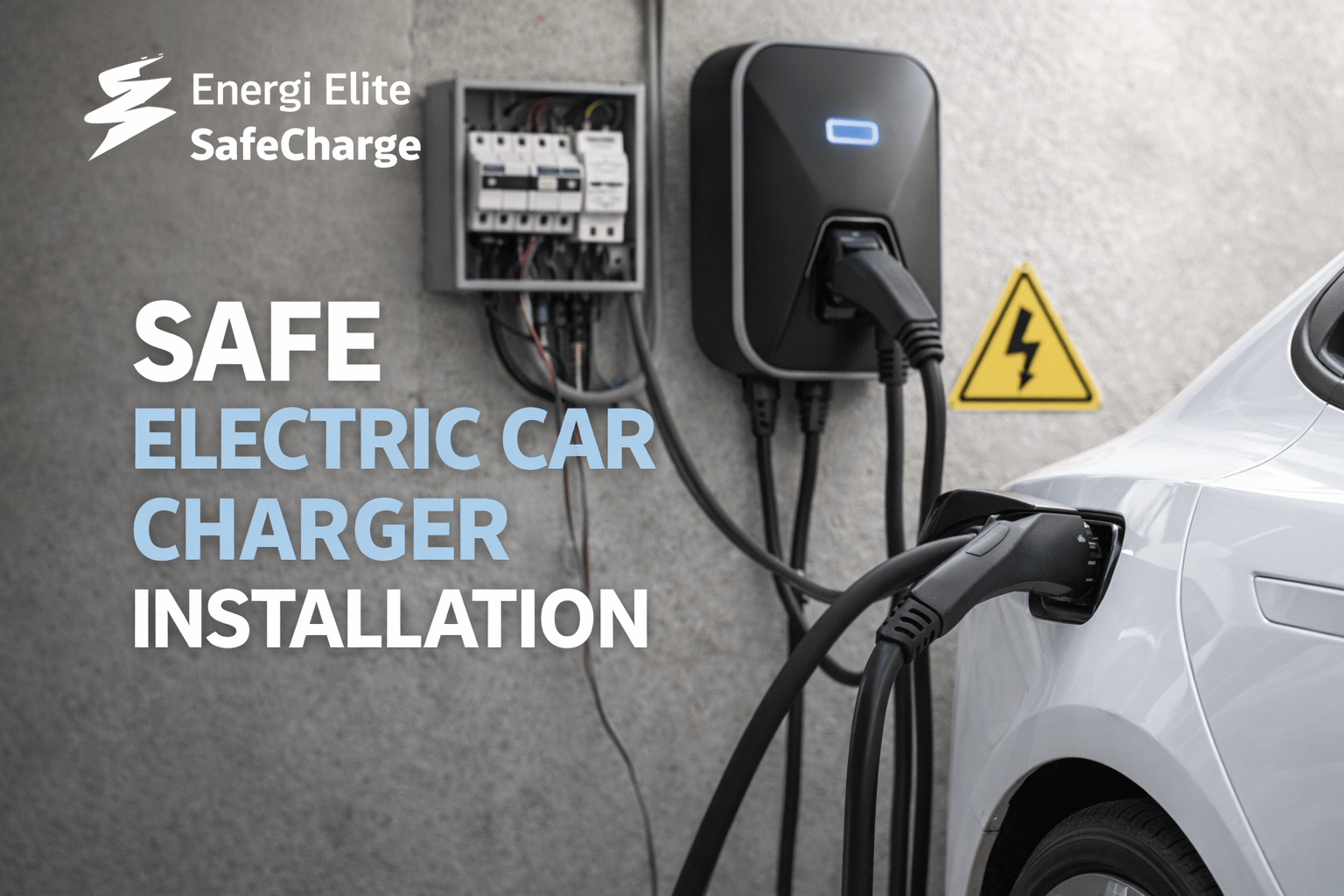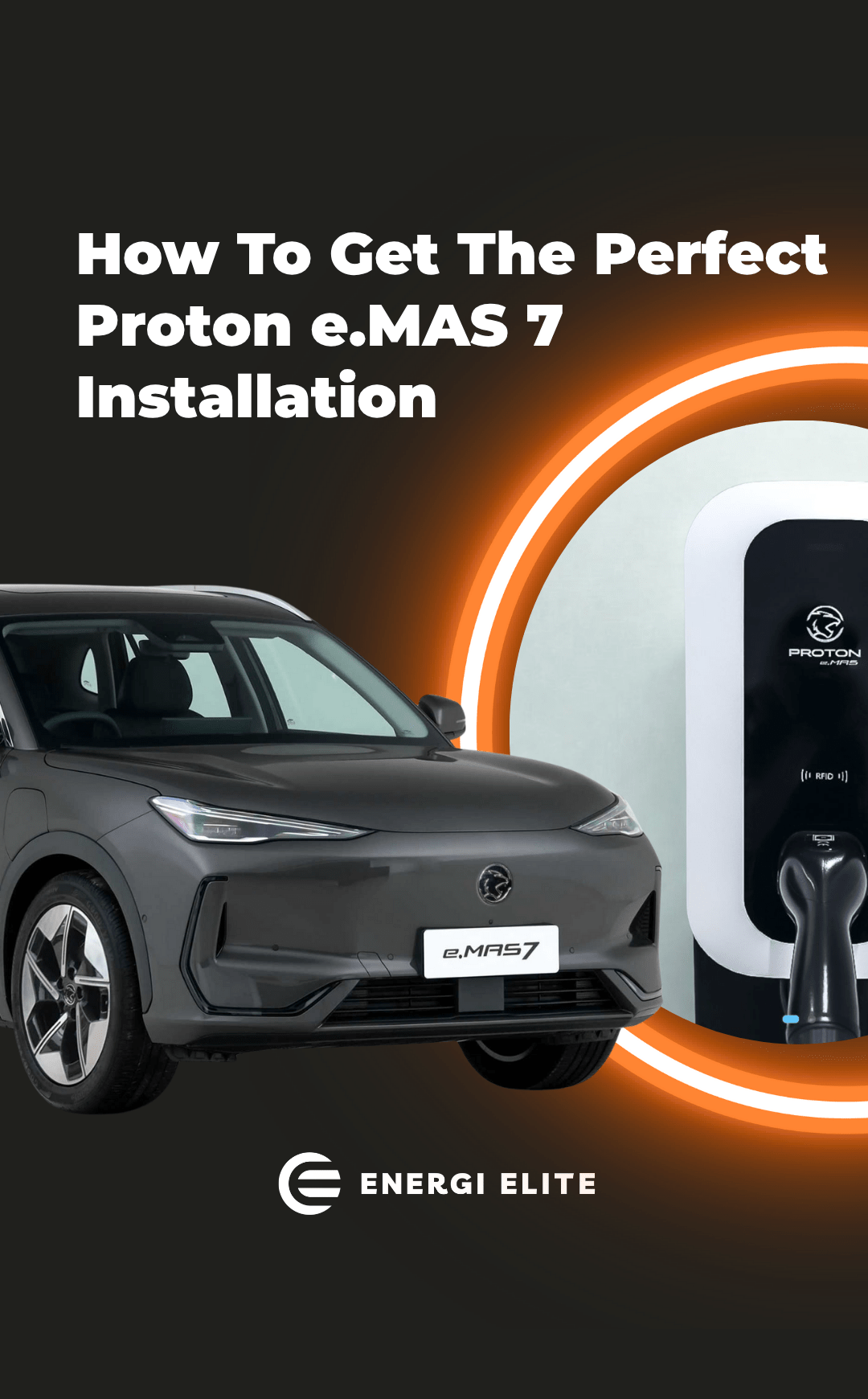Is RON95 Price Increasing Soon? Full Guide.
June 10 marked a heavy blow to diesel vehicle owners as the diesel price skyrocketed to a whopping 56% from RM 1.20 per liter to RM 3.35 per liter. The move has sent many diesel-based vehicle owners in a flurry of anger as the increase was done overnight instead of gradually reducing the prices of diesel periodically. Even more grim news reports that soon RON 95 subsidies are to be in the prying eyes of the Subsidiary Reduction Act.
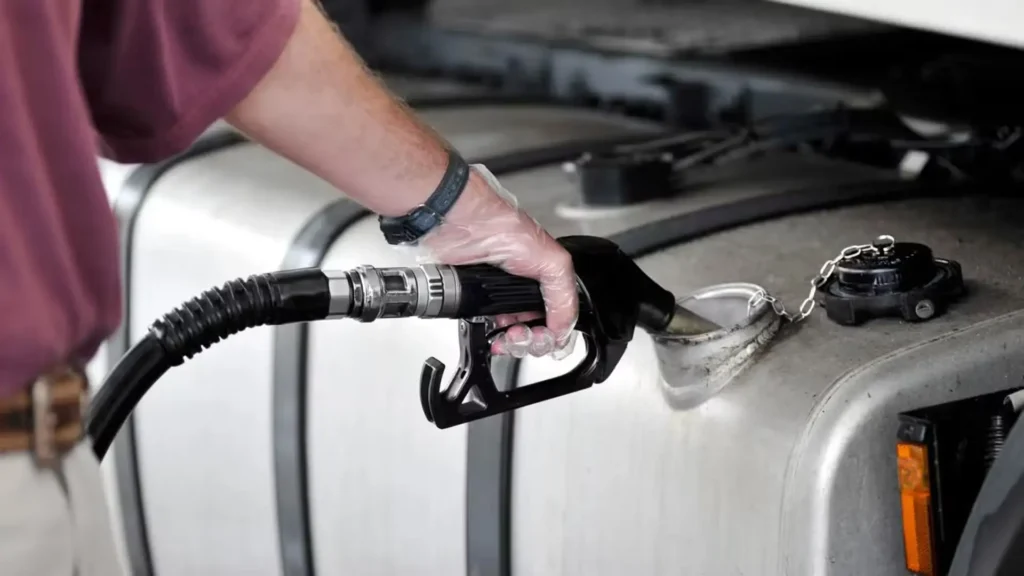
SHOULD YOU CONSIDER AN EV AS YOUR FUTURE PURCHASE FOR A VEHICLE AMIDST THE PETROL PRICING CHAOS?
Following the news that surfaced of a price restructure for RON 95, where does that place EVs to the eyes of the weary public? Economists state that inflation is soon to be expected considering RON 95 users consist of registered motor vehicles that make up RM 66.7 billion of automotive fuel in 2023. Electric vehicles should be re-considered as an alternative to combat these concerning propositions of the pricing structure of fuel without a proper system in place. Following the statements above, here are some additional information about EVs that might help accommodate the thought of owning one.
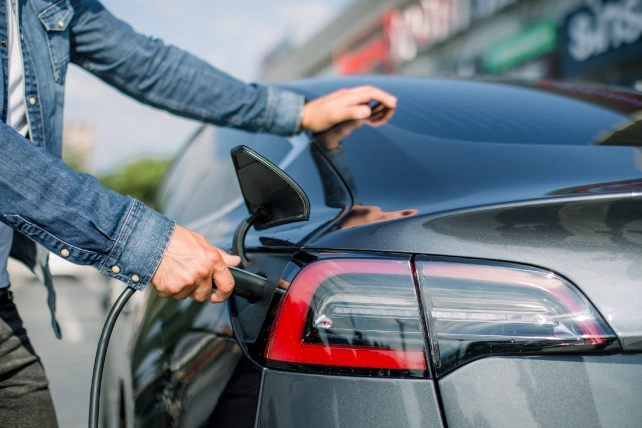
WHAT ARE THE COSTS THAT SURROUNDS AN ELECTRIC VEHICLE?
In the case of ownership expenses when adopting an EV as compared to ICE, the upfront costs of purchasing an EV are by average higher than those of an ICE vehicle. A comprehensive analysis can be made through TCO (Total Cost Ownership) in which combines the important information regarding the costs of owning and operating the vehicle across a period.
Following a research scope that involves the TCO of two vehicles from different branches with a Volkswagen Golf for ICE and Volkswagen ID.3 for an EV respectively across 22 European countries, the cost for ownership varies across different aspects and criteria such as:
- Taxes
- Insurance
- Maintenance
- Tyres
- Electricity / Fuel
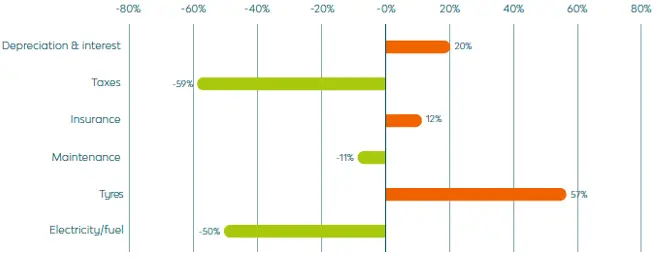
The cost disparity under the context of charging versus fuel makes up a difference of 50% when compared to an ICE vehicle based on the research. The financial benefits of transitioning from fuel to charging with electricity will be the main concern that is tackled within this article
WHERE DO I PUT MY NOZZLE FOR EV?
As for any vehicle, it needs energy to ensure motion. It is important to note that electric vehicles have two different charging types as opposed to conventional ICE vehicle fueling. The concerns regarding electric vehicles are how fast their able to charge compared to just topping off your ICE vehicle fuel in a manner of seconds.
AC AND DC CHARGING
The necessary infrastructure regarding AC charging for your electric vehicles can be managed through the installation of a charging outlet at the comfort of your home. Services done by Energi Elite can ensure a quality hassle-free installation. The charging of an EV can be split into 3 categories that have its unique specifications

EV CHARGING RATES (RESIDENTIAL RATES)
The current pricing of the recharging rates and petrol prices is as follows:
- RON 95 – RM 2.05 per litre
- Diesel – RM 3.35 per litre
- Electric – 60 cents per kilowatt (AC charging)
Following TNB’s residential tariff that will be cumulative based on what rate you are charged with:
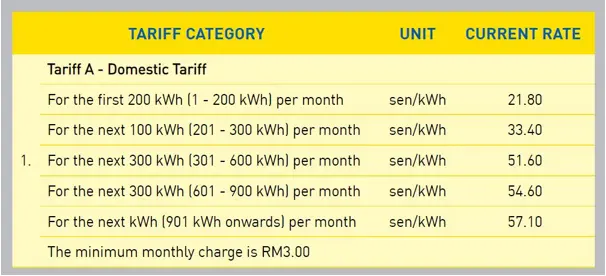
Taking the current maximum rate of RM 0.57 as added relevancy sakes to all social classes into calculation for the charging rate costs under residential living. The EV kWh capacity that will be considered in the calculation will be the Morris Garage MG4 (Standard range) which is rated at 51.0 kWh
| RM 0.57 x 50 kWh = RM 29.07 |
Factoring energy losses during the charging process should be accounted for, thus we’d assume that the loss factor is 16%
| RM 29.07 x 116% = RM 33.72 |
So, in total the cost of residential charging amounts to RM 33.72 to fully charge the Morris Garage MG4.
INTERSTATE CHARGING HUBS FOLLOWING TIME-BASED AND KWH PRICING RATES (SHELL AND GENTARI)
Companies such as Shell and Petronas offer yearly subscription services under Recharge and Gentari respectively, offering reduced costs at the same rate of charging as pay-per-use with added perks such as reserving a charging spot an hour early. The two also offer two charging methods amongst interstate travel highways with prices that vary for pay-per-use:
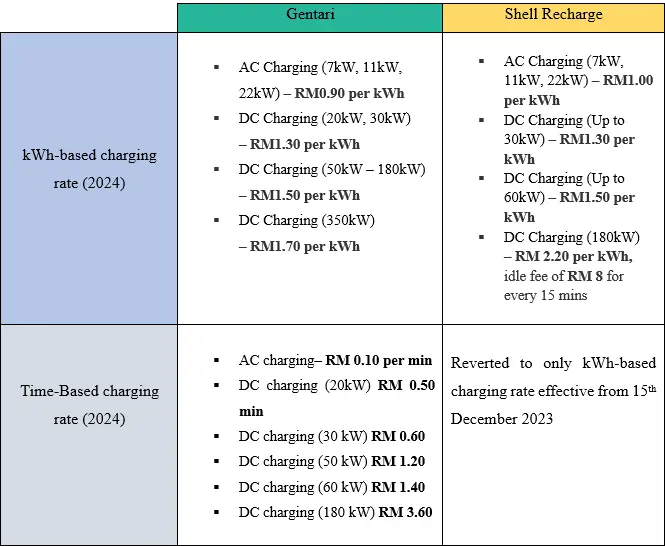
PRICE DIFFERENCE BETWEEN TIME-BASED AND PER KWH CHARGING WITH GENTARI
The prices of the charging station aren’t inclusive of other additional charges that may be imposed for reserving and further idling. The charging follows the rated kWh charging by the model MG MG4.
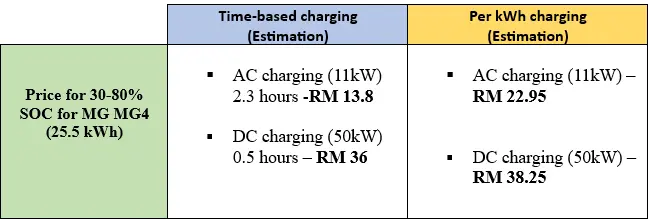
EV VS PETROL COMPARISON PER KILOMETER (HOME WALL BOX CHARGING RATE)
The fully charged Morris Garage MG4 can travel a range of 350 km. Comparing the C-segment with a similar segment and horsepower vehicle at 162 hp which is the Mazda 3 Hatchback 2.0 High Plus (2023) that does 16.9 km per liter makes the cost approximately RM 42 to travel the same range as the Morris Garage MG4
| Morris Garage MG4 (Standard Range) (AC charging)– 350KM for RM 33.72 |
| Mazda 3 Hatchback 2.0 (2023) (RON 95) – 350KM for RM 42 |
| Increase of 19% for the same range and similar range horsepower category vehicle. |
- The yearly cost of charging the Morris Garage MG4 amounts to RM 1753.44
(52 weeks x RM 33.72) traveling an average range of 50 km daily.
- The yearly cost of fuelling the Mazda 3 Hatchback 2.0 (2023) with RON 95 amounts to RM 2216 with a shared 50km daily driving range as the Morris, an increase of 20% in yearly costs.
WHAT ABOUT AFTER THE RON 95 FUEL PRICE HIKE?
With the news of the government hovering over an increase in RON 95 prices by 32 sen to meet its quota in subsidy savings. We can calculate the predicted pricing of the fuelling cost for the ICE vehicle if the pricing has been enacted
| New Ron 95 pricing: RM 2.05 to RM 2.37 per liter |
| That would mean that for a range of 350km like the Morris, the Mazda 3 Hatchback would need to pay RM49. An increase of 14% in fuelling cost. |
| Furthermore, yearly fuel costs would jump to a staggering 13% increase, amounting to an accumulated cost of RM 2559. |
WALL BOX CHARGER’S COSTS – ENERGI ELITE’S GOT YOU COVERED
Factoring costs of charging an EV should factor in the price of owning a wall box at home. The convenience and decreased cost of charging at home should be a priority for all owners of EVs. The pricing of owning one is within the price range of
- RM 2,999 – RM 3,999 for 7kW to 22kW respectively with installation
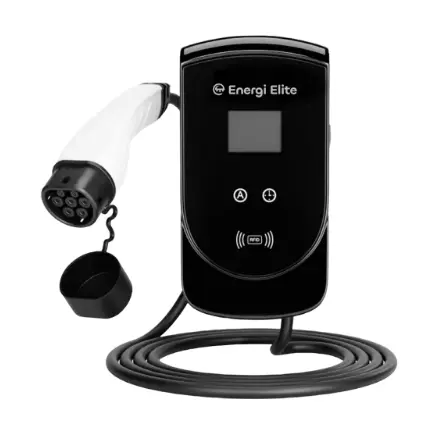
Energi Elite offers the installation of other chargers such as Tesla’s proprietary charging wall box and more at affordable prices. With over 100,000 user approvals on the E1 charge compact energizer for your vehicle, Energi Elite strives to aim for its customer’s satisfaction and safety.
CONCLUSION
The infrastructure for EV charging is constantly changing and the technological advancement of EVs ties closely to the development of the batteries bringing faster charging speeds bridging the gap between fuelling and charging much closer such as a modular battery swapping station
It should be noted that the convenience of fueling is currently unbeatable as opposed to waiting for an EV to charge. Certain modular stations that offer battery swapping currently implemented outside of Malaysia could make their way here.



